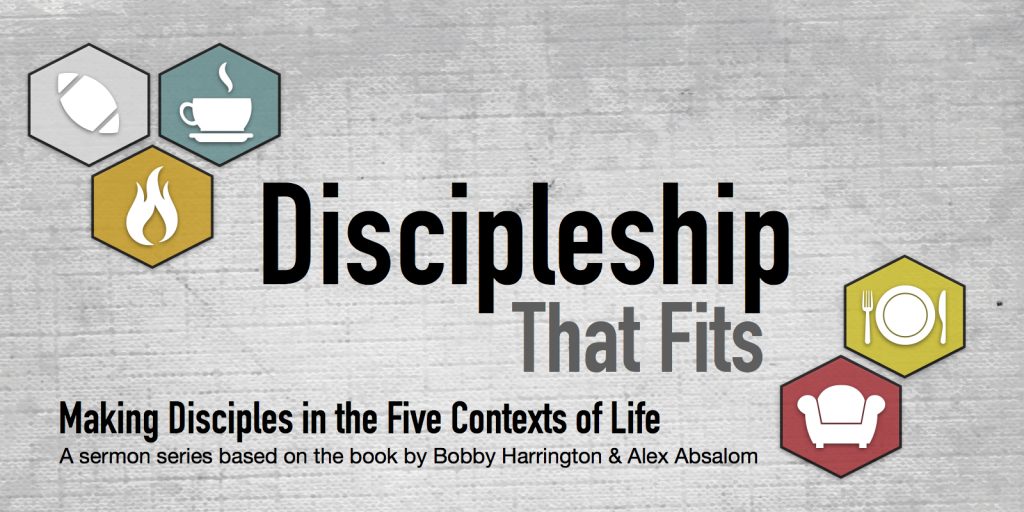Six weeks ago, we began looking at a fairly straight-forward question: What does it look like to make disciples?
Does it look like Sunday morning at a mega-church? Does it look like coffee with a friend at Tim Hortons? Does it look serving the homeless at a soup kitchen? Does it look like a neighbourhood block-party? Does it look like a ladies Bible study or youth group or Sunday school or kids club or any of these things?
Well, to find the answer to these questions, we started by defining discipleship. And of course, the key passage we looked at was Matthew 28:18-20 – which by now, I imagine most of you have memorized – since we’ve looked at it for each of the last six weeks! But it says this:
18 Jesus came and told his disciples, “I have been given all authority in heaven and on earth. 19 Therefore, go and make disciples of all the nations, baptizing them in the name of the Father and the Son and the Holy Spirit. 20 Teach these new disciples to obey all the commands I have given you. And be sure of this: I am with you always, even to the end of the age.” Matthew 28:18-20
Now this isn’t the only place where the Bible talks about making disciples – its actually quite a re-occuring theme – but based on that passage, we defined discipleship as: helping people trust and follow Jesus.
Discipleship: Helping people trust and follow Jesus.
It’s really as simple as that. If you are helping people trust and follow Jesus – then you are making disciples. And we came to realize that we can help people trust and follow Jesus in a lot of different ways – and in a lot of different contexts.
In fact, we identified 5 different contexts in the life and ministry of Jesus that we could learn from as we try to model our discipleship on what He did.
At a glance, those five context’s were: The Public Context, The Social Context, The Personal Context, The Transparent Context, and the Divine Context.
And so the first context that we looked at was the public context.
Leave a Comment

